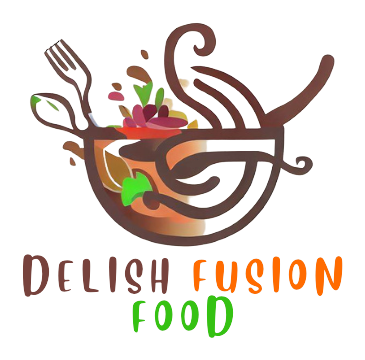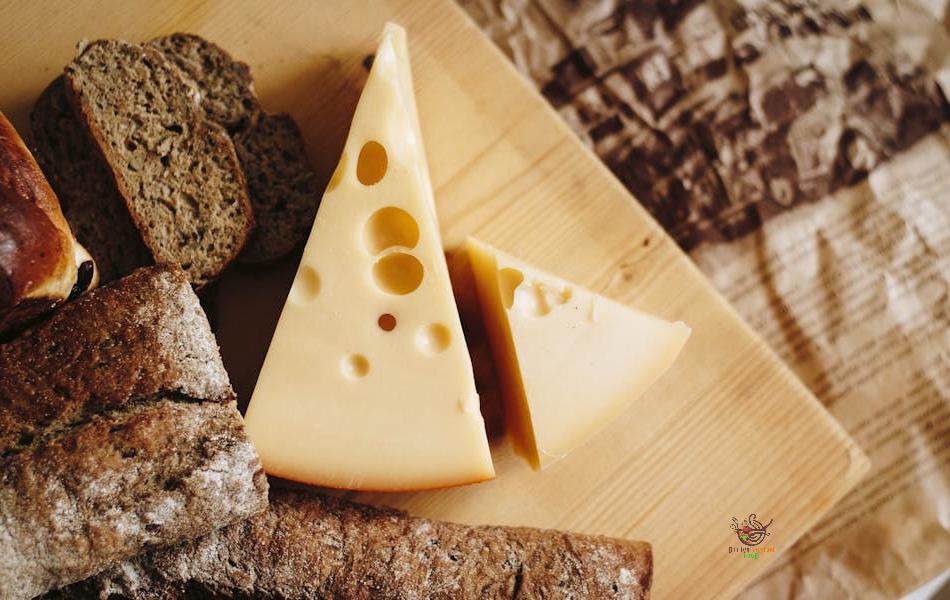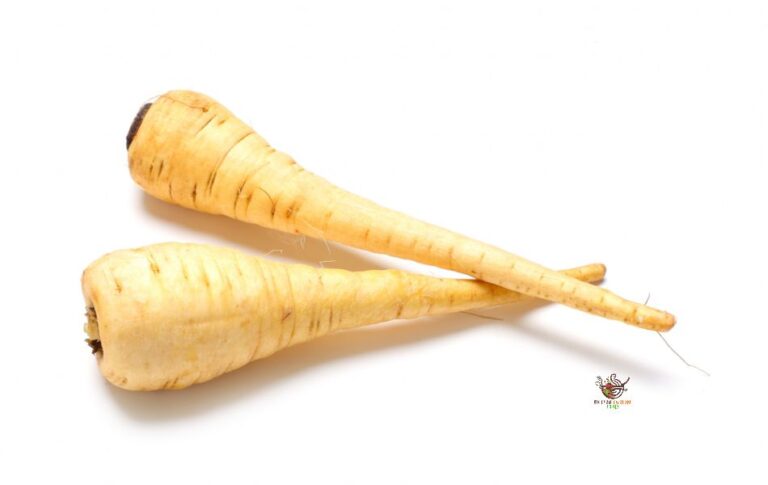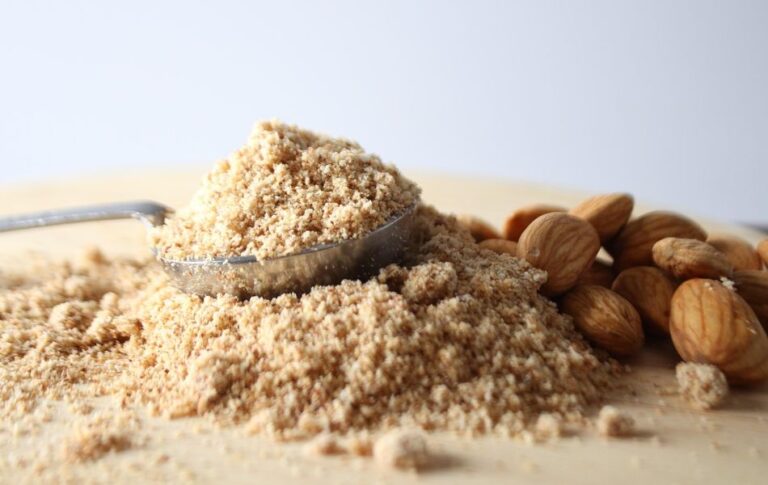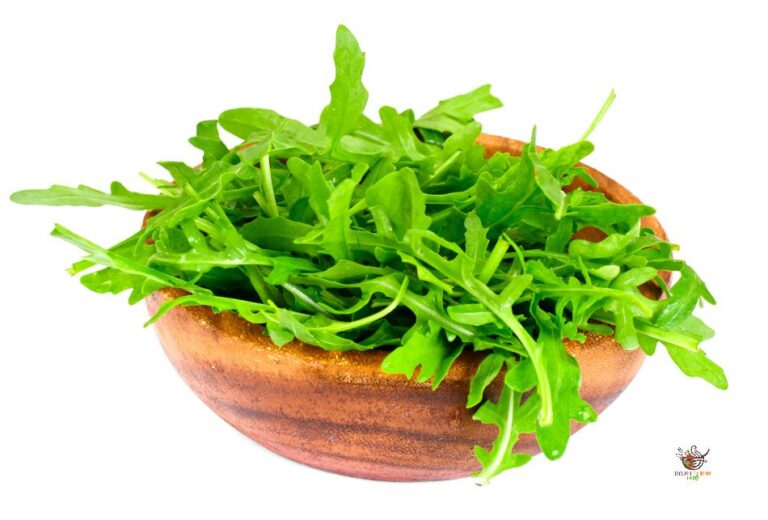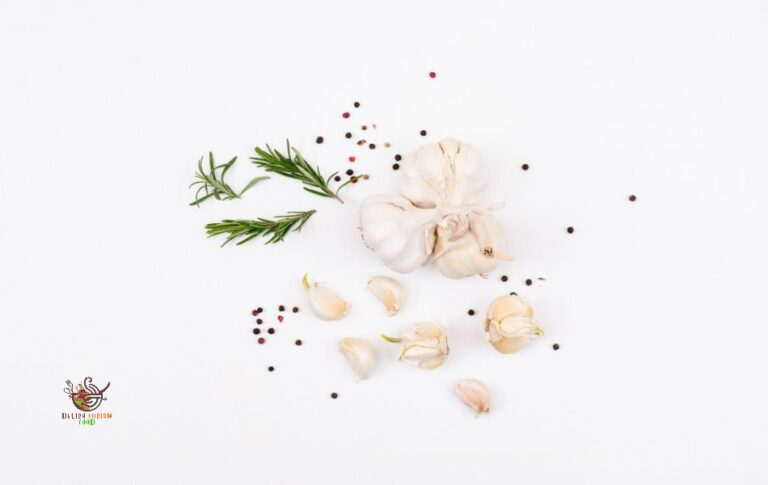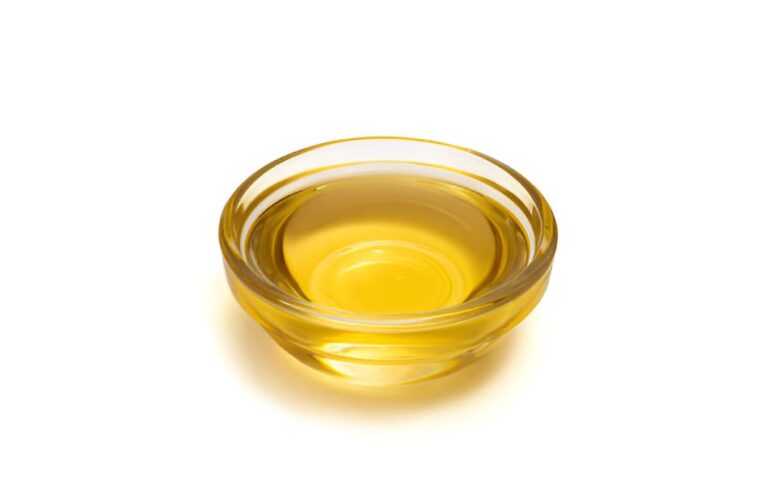Cheesy Swaps: Top Substitutes for Swiss Cheese
Switzerland is famous for more than just banking, chocolate, and watches. They’re also known for their cheese. Switzerland has been making this traditional food for centuries. It’s no wonder there are many different types of Swiss cheese.
However, not all types of Swiss cheese are well-known outside Switzerland. The one we usually think of as Swiss cheese is the commercial Emmenthal variety.
You can enjoy this solid and flavorful cheese by itself, in sandwiches, or as part of different recipes. Let’s explore substitutes for Swiss cheese that you can use as alternatives when needed.
What Makes Swiss Cheese Special?
Swiss cheese is loved for its mild taste and its ability to melt slowly and evenly, making it perfect for fondue. It’s great in many recipes like pizza, pasta, and sandwiches.
There are different kinds of Swiss cheese, but the most common one is Emmental. Other types of Swiss cheese include Vacherin, Schabziger, Tete de Moine, L’vitaz, Belper Hirn, Appenzeller, Scharfe Maxx, and Sbrinz.
Understanding Swiss Cheese: Characteristics and Taste
Swiss cheese stands out with its unique traits and delicious flavor. One distinctive feature is the existence of holes or “eyes” scattered throughout the cheese. These holes develop as bacteria release carbon dioxide during the fermentation, forming pockets of air in the cheese.
When it comes to taste, Swiss cheese offers a mild and nutty flavor with a touch of sweetness. Its versatility stems from its smooth and creamy texture, making it suitable for a multitude of recipes.
Why Consider Swiss Cheese Substitutes?
While Swiss cheese is super tasty, there are times you might need a substitute. Maybe you can’t have dairy due to lactose intolerance, or you’re vegan and prefer plant-based options. It could also be a matter of availability or simply personal preference. Whatever the reason, trying out Swiss cheese substitutes opens up lots of options. You can find nut-based ones for a creamy texture or dairy-based ones that taste like Swiss cheese. So, you can satisfy your cravings without worrying about your dietary needs or what you prefer.
Dairy-Based Substitutes for Swiss Cheese
Don’t worry if you don’t have Swiss cheese for your recipe. You can still cook your dish with these substitutes. Check your fridge for these items from my list of the best Swiss cheese substitutes.
1. Cheddar Cheese: A Versatile Option
Cheddar cheese is a strong-flavored English cheese commonly found in supermarkets. If you’re not a cheese expert, you might confuse it with Emmental, but Cheddar is denser without those round holes.
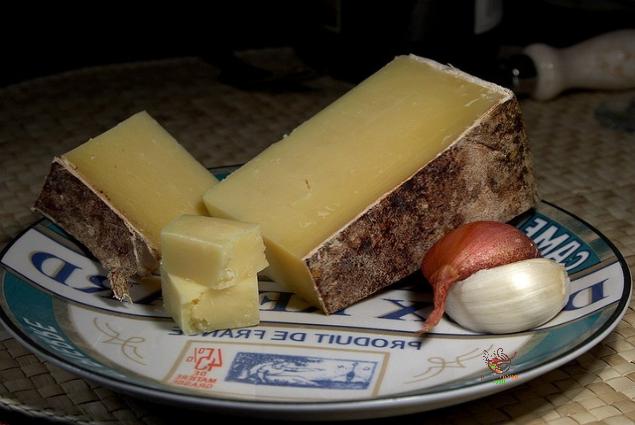
This cheese is famous worldwide and is made from cow’s milk everywhere. Cheddar cheese begins as semi-hard and turns hard and crumbly as it ages. Its flavor shifts from mild to strong during this process. Cheddar cheese is rich in protein and incredibly tasty.
This cheese is easy to find and budget-friendly, perfect for many recipes. Whether you’re adding it to an omelet or making it the star of your sandwich or salad, there are endless ways to use this bold ingredient.
2. Fontina Cheese: A Delicious Swiss Cheese Substitute
Fontina cheese comes from Italy’s Aosta Valley, usually made from raw cow’s milk. However, in other parts of the world, it’s made differently, leading to slight variations in the final product. This top-quality cheese has a fine texture and is soft and buttery. It melts well, making it a great alternative to Swiss cheese.
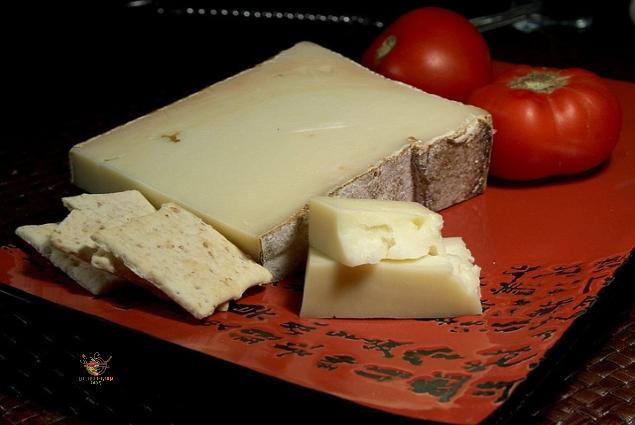
Fontina cheese is almost spreadable and has a straw-like color. As it matures, it becomes darker and drier. It has small holes and a dense texture with some elasticity. Like wines, cheeses have different flavors and hints, and Fontina is nutty. Hints of honey or mushrooms make it stand out in dishes or when eaten alone.
Fontina cheese is incredibly versatile and perfect for any occasion. It goes great with various types of meat, making it ideal for starters and buffets with salami or ham. It’s perfect for a wide range of dishes, especially those inspired by or originating from Italian cuisine.
3. Edam Cheese
Edam cheese is semi-hard and made in the northern Netherlands. It can be from cow’s or goat’s milk, but the one you usually find in stores is cow’s milk, like Swiss cheese. As Edam cheese ages, it gets more flavorful. However, if it ages too long, it might become too strong to substitute for Swiss cheese. It’s better to use a younger, milder Edam cheese instead.
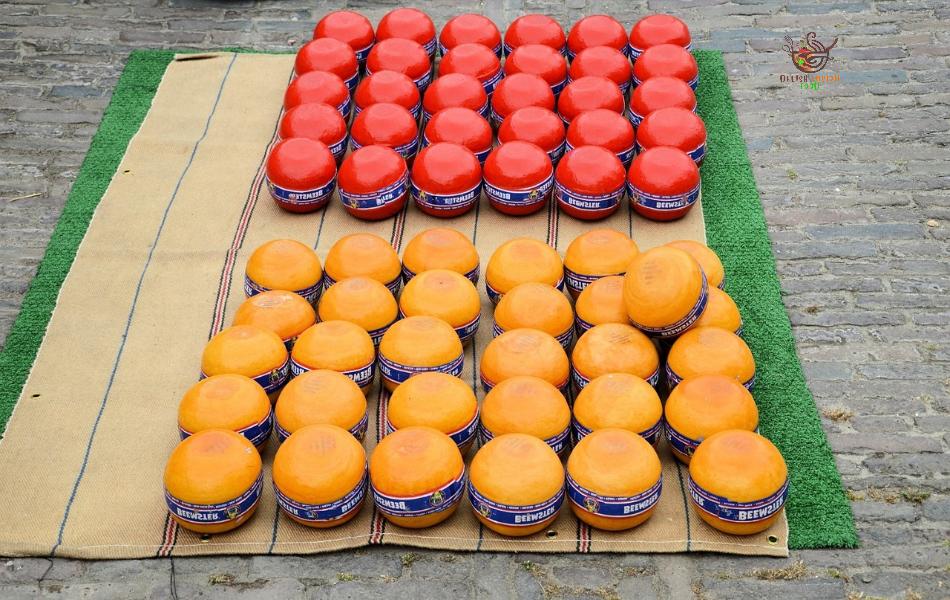
Edam cheese is a good swap for Swiss cheese as a snack or appetizer, especially with fruit. It’s also great as a dessert or on a cheese plate. You’ll often see Edam cheese wrapped in red wax at the store. This wax protects the cheese until you’re ready to use it, helping to maintain its smooth and creamy texture.
4. Mozzarella
Mozzarella originally comes from Italy and is traditionally made from buffalo milk. However, it’s now also made from cow’s milk, making it a good substitute for Swiss cheese.
While Mozzarella is made in many countries today, the traditional Italian version is still the best. This cheese melts well and has a soft texture with a glossy surface and white color. It feels more watery than hard cheese.
You can also eat Mozzarella raw. To store it properly, keep it in its natural serum and store it in the refrigerator.
5. Gouda Cheese
Gouda cheese comes from the south of the Netherlands and, like Swiss cheese, is made from cow’s milk. It’s semi-hard with a slightly sweet flavor that also has some nuttiness to it.
Gouda cheese can be aged for different durations, resulting in varying textures and flavors. Depending on its age, Gouda can range from smooth to sharp.
When you use Gouda in dishes like chicken bakes or casseroles, it tastes similar to Swiss cheese, especially when melted. For a Swiss cheese replacement, choose medium-flavored Gouda. If you want a milder taste, go for Gouda aged around four weeks. For a strong flavor, pick Gouda aged up to a year.
6. Jarlsberg Cheese
Jarlsberg cheese is famous for its buttery and nutty taste. You can find it in Norway, the U.S., Australia, Canada, and the United Kingdom.
It’s a great substitute for Swiss cheese because it combines Swiss and Emmental characteristics with Dutch Gouda influences. While it wasn’t popular until the mid-1900s, it now makes up 80% of Norway’s cheese exports.
Its distinct flavor comes from being salted and stored for three months. You can find low-fat, extra-aged, rindless, and original variations. Jarlsberg is perfect for hot and cold sandwiches or snack plates. It melts nicely for cheesy dips or grating into dishes to add flavor and texture.
7. Mascarpone Cheese
Mascarpone cheese is a soft Italian cream cheese from Lombardy, Italy. It’s commonly used in various dishes to make them creamy. To make mascarpone, lemon juice is added to heavy cream, causing it to thicken. Then, the mixture is strained through a cheesecloth to separate the liquids from the solids.
Even though mascarpone isn’t the same texture as Swiss cheese, you can still use it in recipes that need a creamy touch, like sauces or pasta. Since it has a mild flavor like Swiss cheese, it can work as a substitute in some cases.
8. Gruyere Cheese
Gruyere cheese, like Swiss cheese, comes from the Alps. It’s made from unpasteurized cow’s milk and has a nutty taste that gets stronger as it ages. Known for melting well, it’s an excellent substitute for Swiss cheese.
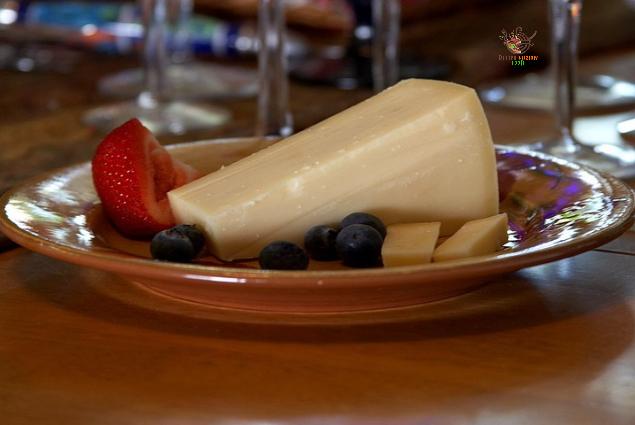
Unlike Swiss cheese, Gruyere doesn’t always have the characteristic holes but may have tiny cracks due to the aging process. It’s essential to note that Gruyere can have a strong smell. For a Swiss cheese substitute, especially in cooking, it’s recommended to use an aged Gruyere for a more pronounced flavor.
9. Manchego Cheese: A Unique Alternative
Manchego cheese comes from Spain and is made only from Manchega sheep’s milk. It’s famous for its rind, which has a herringbone or zigzag pattern.
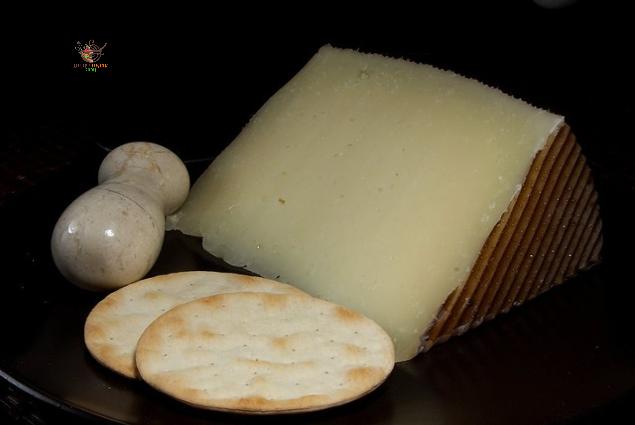
Unlike Swiss cheese, which has a mild and nutty flavor, Manchego has a strong taste with fruity and sometimes grassy notes. Despite this difference, it melts well, making it a good substitute for Swiss cheese. It also has a stringy texture.
However, if you prefer a milder cheese flavor in your dish, Manchego may not be the best choice for you.
10. Pecorino Romano
Pecorino Romano is a hard cheese, unlike Swiss cheese. It can be aged anywhere from two months to three years, with longer aging resulting in a richer and more intense flavor.
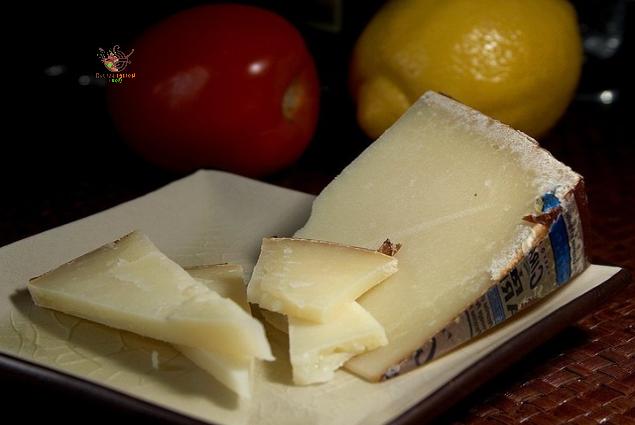
Like Manchego, Pecorino Romano is crafted from sheep’s milk and has a long history of production spanning centuries. It typically boasts a sharp and tangy flavor and can sometimes be crumbly in texture.
You can find Pecorino Romano in various forms, such as whole, shredded, or grated. Use it instead of Swiss cheese in dishes like quiches, pasta, or pizza. Since Pecorino Romano has a more intense flavor, you might not need as much as Swiss cheese. Adjust accordingly to achieve the desired cheesy flavor.
11. Provolone Cheese
Provolone cheese is an excellent choice if you want a cheese with mild flavor and versatile texture. This Italian cheese, made from cow’s milk, boasts a smooth and creamy texture, making it easy to substitute in various recipes.
In terms of taste, provolone cheese is pleasantly mild with a slightly nutty flavor that complements a wide range of dishes.
Plant-Based Alternatives to Swiss Cheese
Swiss Cheese Alternatives Made from Nuts
Swiss Cheese Substitute: Almond-Based
This dairy-free option, made from finely ground almonds, mimics Swiss cheese with a creamy texture and nutty flavor. Versatile for sandwiches, salads, and fondue, it’s rich in healthy fats, protein, and essential nutrients. Whether you are lactose intolerant, vegan, or simply curious, indulge in this satisfying substitute for your cheesy cravings.
Swiss Cheese Substitute: Cashew-Based
Cashews, known for their creamy texture and mild taste, make an excellent base for Swiss cheese alternatives. Blending soaked cashews with nutritional yeast, lemon juice, and garlic powder creates a smooth, creamy cheese with a distinctive Swiss flavor. Perfect for melting and adding nutty goodness to any dish.
Soy-Based Alternatives to Swiss Cheese
Crafted from fermented soybeans, soy-based options offer a tangy and savory taste similar to traditional Swiss cheese.
This soy-based alternative offers a creamy texture and nutty flavor, perfect for fondue and more. It satisfies Swiss cheese cravings without dairy, allowing you to stick to your dietary preferences. Remember, personal preference matters, so feel free to experiment until you find the perfect match for your taste buds!
Other Plant-Based Alternatives to Swiss Cheese
Beyond nuts and soy, explore creative alternatives for plant-based Swiss cheese substitutes. Try combining nutritional yeast and miso paste for a savory, tangy flavor reminiscent of Swiss cheese. Fermented vegetables like sauerkraut or kimchi offer a unique tanginess and texture to dishes. Experiment with these alternatives to find the perfect match for your personal preferences!
FAQ
Is Lorraine cheese the same as Swiss cheese?
Lorraine cheese is a type of Swiss cheese known for its small holes and lacy look. Sometimes called Lacy Swiss, it’s one of three Swiss cheese varieties made in the United States. Alongside Lacey Swiss, you’ll find aged Swiss and Baby Swiss produced here, not in Switzerland.
Why Swiss cheese has holes?
Swiss cheese gets its holes from bacteria that develop during aging. This bacteria, called Propionibacterium freudenreichii, produces carbon dioxide gas as the cheese matures, forming the characteristic holes. Interestingly, these holes don’t affect the taste of the cheese. Instead, it’s the combination of bacteria and the cheese-making process that gives Swiss cheese its unique flavor.
Which type of Swiss cheese is the most popular?
Emmenthal cheese is the most well-known type of Swiss cheese globally. It’s easily recognizable by its signature holes scattered throughout the cheese.
Brie vs. Swiss cheese: what’s the difference?
No, Brie is not Swiss cheese. Originating from the Brie region in France, Brie cheese is distinct from Swiss cheese. Brie is a soft, creamy cheese with a pale color and a slight tang, offering a delightful texture and flavor profile.
See Also – Substitute for Blue Cheese: 11 Delicious Options to Try
Conclusion
If you can’t find Swiss cheese, no worries! You can still make a tasty dish with a substitute. Just remember, some substitutes may change the flavor a bit – but that’s okay! You might even like it better. And check if the substitute melts nicely, so it fits your dish perfectly.
